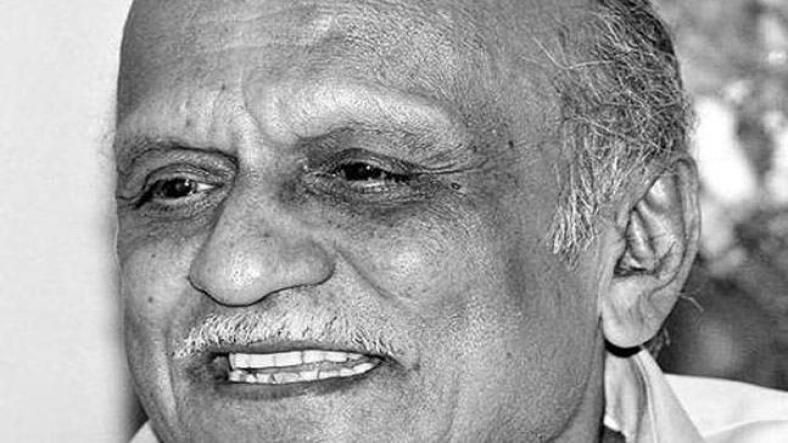M. M. Kalburgi, whose full name was Malleshappa Madivalappa Kalburgi, was one of the most respected scholars and writers in Kannada literature. He was known for his deep knowledge of ancient Kannada texts, his bold views on religion and society, and his commitment to rational thinking. As a former Vice-Chancellor of Kannada University in Hampi, he made major contributions to the study of Karnataka’s literary and cultural history.
Kalburgi’s work brought new attention to the Lingayat movement, Vachana literature, and social reform ideas rooted in Karnataka’s past. However, his strong criticism of religious orthodoxy made him a controversial figure. His tragic assassination in 2015 shocked the nation and raised serious questions about freedom of speech and the safety of intellectuals in India.
This article explores his life, achievements, controversies, and lasting legacy.
Early Life and Education
M. M. Kalburgi was born on 28 November 1938 in Yaragal, a village in the Bijapur (now Vijayapura) district of Karnataka. He grew up in a rural environment where he developed an early interest in reading and traditional Kannada literature.
After completing his early schooling, he went on to study at Karnataka University in Dharwad, one of the top centers of Kannada literary research. There, he specialized in Kannada literature and shaped his academic foundation. His higher education also trained him in research methods, literary criticism, and the historical study of medieval Kannada texts.
This strong academic background helped him become one of the most trusted voices in Kannada literary studies.
Academic and Literary Career
Kalburgi began his professional career as a lecturer at Karnataka University, Dharwad. His interest in Kannada culture, language, and history led him to explore ancient manuscripts, inscriptions, and the works of early Kannada poets.
Over time, he became known for his disciplined research and fearless interpretation of historical texts. Because of his growing reputation, he was later appointed as the Vice-Chancellor of Kannada University in Hampi. In this role, he worked to promote Kannada language, culture, and folklore studies.
Throughout his career, Kalburgi wrote more than 20 books and hundreds of research papers. His work focused on:
- Vachana Sahitya (Vachana literature)
- Lingayat and Veerashaiva traditions
- Medieval Kannada history
- Social reform movements in Karnataka
- Literary criticism and cultural studies
His writing was known for being clear, honest, and rooted in historical evidence.
Contributions to Kannada Literature
One of Kalburgi’s greatest contributions was his study of Vachana Sahitya. Vachanas are short poems written by 12th-century social reformers such as Basavanna, Akka Mahadevi, Allama Prabhu, and others. These writings promoted equality, rejected caste discrimination, and encouraged devotion without rituals.
Kalburgi’s research focused on:
- The social messages in Vachanas
- The historical development of the Lingayat movement
- The philosophical ideas of medieval reformers
- The cultural background in which Vachanas were written
His interpretations helped modern readers understand how these poems supported social change in the 12th century and how their message remains important even today.
He also wrote extensively on ancient Kannada scripts, manuscripts, and cultural traditions. His famous book “Marga” contains essays on religion, literature, and society. It is still considered one of the most important books for students of Kannada culture and literary criticism.
Views on Religion, Society, and Rationalism
Kalburgi was not only a scholar of literature but also a strong voice for social reform. He believed that society should be guided by reason, equality, and justice. Many of his opinions were based on the teachings of Basavanna and other reformers of the Lingayat tradition.
Some of his key beliefs included:
- Society should move away from superstition and blind belief.
- The Lingayat faith had its own philosophy and should be recognized as separate from Hinduism.
- Rituals and idol worship were additions made later and were not part of the original Lingayat teachings.
- Regressive or outdated practices must be questioned.
- Freedom of expression is essential for any progressive society.
These ideas made him popular among rationalists, social reformers, and progressive groups.
However, his straightforward criticism of orthodox religious practices led to opposition from some conservative groups. Despite this, he stood firm in his beliefs and continued writing openly on sensitive issues.
Google Ad 1
Controversies Surrounding His Work
Because Kalburgi openly challenged social and religious norms, he often found himself at the center of controversy. Many of his writings sparked debates, especially within the Lingayat and Veerashaiva communities.
Some areas of controversy included:
1. Lingayat–Hinduism Debate
Kalburgi supported the idea that Lingayatism was a separate religion with its own customs and beliefs. This viewpoint created strong disagreement among religious leaders.
2. Criticism of Idol Worship
He questioned the practice of idol worship, stating that it did not match the original philosophy of the 12th-century Lingayat movement.
3. Support for Rationalist Thinkers
Kalburgi openly appreciated the ideas of reformers like Periyar and Dr. B. R. Ambedkar, which drew criticism from traditionalists.
4. Interpretation of Historical Texts
Some groups believed that his academic interpretations hurt religious sentiments. However, Kalburgi always argued that his work was based on historical facts, not personal opinion.
Despite the controversies, he remained calm and continued his research with honesty and courage.
Assassination and National Outcry
On 30 August 2015, M. M. Kalburgi was shot dead at his home in Dharwad by two assailants who came pretending to meet him. His murder shocked India and was widely condemned by writers, scholars, activists, and the public.
Many believed his assassination was linked to his outspoken views on religion and rationalism. His death was compared to the killings of other rationalist thinkers such as:
- Dr. Narendra Dabholkar
- Govind Pansare
- Gauri Lankesh
These incidents raised concerns about:
- Safety of writers and scholars
- Rising intolerance
- Freedom of expression in India
Following his death, several writers returned their Sahitya Akademi awards as a mark of protest.
Legacy and Long-Lasting Influence
Even though his life ended tragically, Kalburgi’s influence continues to grow. His writings, lectures, and research remain important for anyone studying Kannada literature, history, and religious movements.
His legacy includes:
1. Academic Contribution
He helped preserve ancient Kannada literature and made it accessible to new generations.
2. Promotion of Rational Thinking
He encouraged students and citizens to question blind beliefs and think independently.
3. Inspiration for Scholars
Many young researchers and writers in Karnataka consider him a role model.
4. Debate on Freedom of Expression
His assassination sparked national discussions about protecting intellectuals and ensuring their freedom.
5. Strengthening Kannada Studies
His research helped create a stronger foundation for Kannada universities, research departments, and cultural organizations.
Kalburgi’s courage to speak the truth, even when it was unpopular, remains one of his most significant contributions to society.
Awards and Recognition
During his lifetime, Kalburgi received several honors for his work, including the prestigious Sahitya Akademi Award. Many universities and literary institutions recognized his research and his impact on Kannada culture.
Conclusion
M. M. Kalburgi was much more than a scholar. He was a fearless thinker, a critic of social injustice, and a strong advocate for rationalism. His work challenged deeply rooted beliefs, inspired debates, and encouraged society to reflect on its traditions.
His tragic death was a loss not only for Kannada literature but for all those who value free thought. Yet, his legacy continues to guide students, writers, researchers, and ordinary readers.
Kalburgi’s contributions remind us that true scholarship requires honesty, courage, and a willingness to question the world around us.
For more articles on great personalities and inspiring lives, explore the other stories available on PeoplesBLOG










